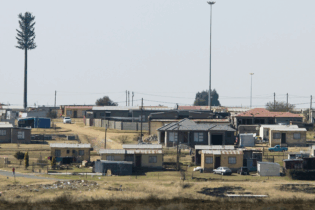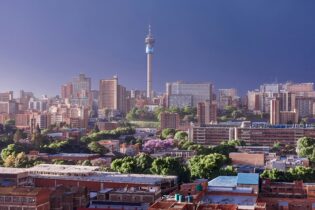Consulting Engineers South Africa (CESA) President Naren Bhojaram has cautioned that corruption is paralysing the country and eating away the moral fibre of our society. He states that “While we all acknowledge that corruption is a huge stumbling block to service delivery, there seems not to be a political will to eradicate the scourge”.
Bhojaram presented CESA’s 2013 theme, of ‘Sustainability is Everyone’s Business’, at a media breakfast in Johannesburg. He stated that while big ticket items such as global warming, environmental pollution, and the like are important, there are basic and fundamental human needs which are top of mind issues for the average person in a developing country. He is concerned that there are still huge backlogs with proper housing, essential services such as water, sanitation, energy, mobility and food. For the average man in the street in developing nations, provision of these services mean sustainability. He contends that sustainability is more than this. “Sustainability is also clean governance and economic freedom. This means job creation and self-sufficiency. We collectively have to balance social, political and economic issues with the wide spectrum of complex environmental issues and awareness about what the earth can provide and how carefully we use the earth’s natural resources, especially those which are not renewable.” Whose problem is it?Bhojaram questioned whether sustainability was the responsibility of global institutions and organizations such as the United Nations or is it the responsibility of civil society or business leaders. “We can also turn to global voluntary associations such as The International Federation of Consulting Engineers (FIDIC) or local associations such as CESA. We could park the responsibility with our predecessors or make the current political leadership of the day responsible.” He added that the easiest thing in the world is to blame others for our environmental woes, but when all is said and done, each one of us in the present is collectively responsible. “You and I are responsible for sustainability,” he averred adding that President Jacob Zuma cannot be blamed for corruption in our country because his job is to create a platform for business to operate in an ethical, responsible and sustainable way and for him and his government to lead by example. We cannot escape our collective responsibility. Therefore, let us deal with it”. “The world perception of South Africa with respect to business integrity and corruption is deteriorating at an alarming rate. The immediate but unfortunate consequence of this is the imminent driving away of foreign investors. In addition to this, it is demoralising to the average person trying to earn an honest living. Corruption forces honest hard working citizens to leave the country. Those who leave because of the demise of an honest and fair business environment are invariably the ones who are making a positive contribution to the economy at large. Businesses that were once loyal to South Africa also consider their options in this regard.” “Strong action is required from all stakeholders to curb the scourge of white collar crime and we need the Government to take the lead in this. As business we are committed to playing our part.We have noted that business confidence dropped in South Africa in our sector in 2012 and more of our members are moving to serve clients beyond our borders, taking advantage of the pockets of opportunities in countries outside South Africa.” He went on to state that South Africa dropped, to CESA’s dismay, further on the International Transparency Index and now ranks number 9 on the African continent, behind Botswana, Cape Verde, Mauritius, Rwanda, Seychelles, Namibia, Ghana and Lesotho. Transparency International ranked South Africa 69 out of 176 countries, with a score of 43, which is also the global average. “The ANC’s December Conference in Mangaung saw President Jacob Zuma win a second term as expected. The President has promised to do much more to curb corruption in our country and this is great news for our industry. We are also positive about the election of Cyril Ramaphosa as the Deputy President and believe that his business skills and acumen will bring positive energy to government operating as a business and more to stabilize the jittery economic position we find ourselves in as a country.”
Key sustainability indicators for South Africa
Bhojaram stated that there are a number of challenges that the country face. CESA believes that the focus should be on the key sustainability indicators and deal with these in a systematic way with cooperation by all stakeholders in order to achieve success. The key sustainability indicators for South Africa in CESA’s view is that education should be declared an essential service and the profession should attract the country’s top brains at commensurate remuneration. The provision of adequate education infrastructure and equipment as well as top notch educators is the key ingredient to a sustainable South Africa.
• Provide a good quality and high standard of education rather than a free education in substandard facilities with an inadequate number of lecturing staff that is of poor calibre. • Be duty bound to report unethical behavior – break the silence for a sustainable South Africa! Make decisions now which will be relevant in 100 years’ time. Short term decision making is not sustainable Bhojaram concluded by stating that sustainability is everybody’s business and made an impassionate plea for the media to support CESA in lobbying Government and the private sector in its drive to expose corruption to ensure a sustainable life for all. “Embrace new ways of doing things and most of all; let us all pull together towards a sustainable future. Sustainability is everyone’s business”.







